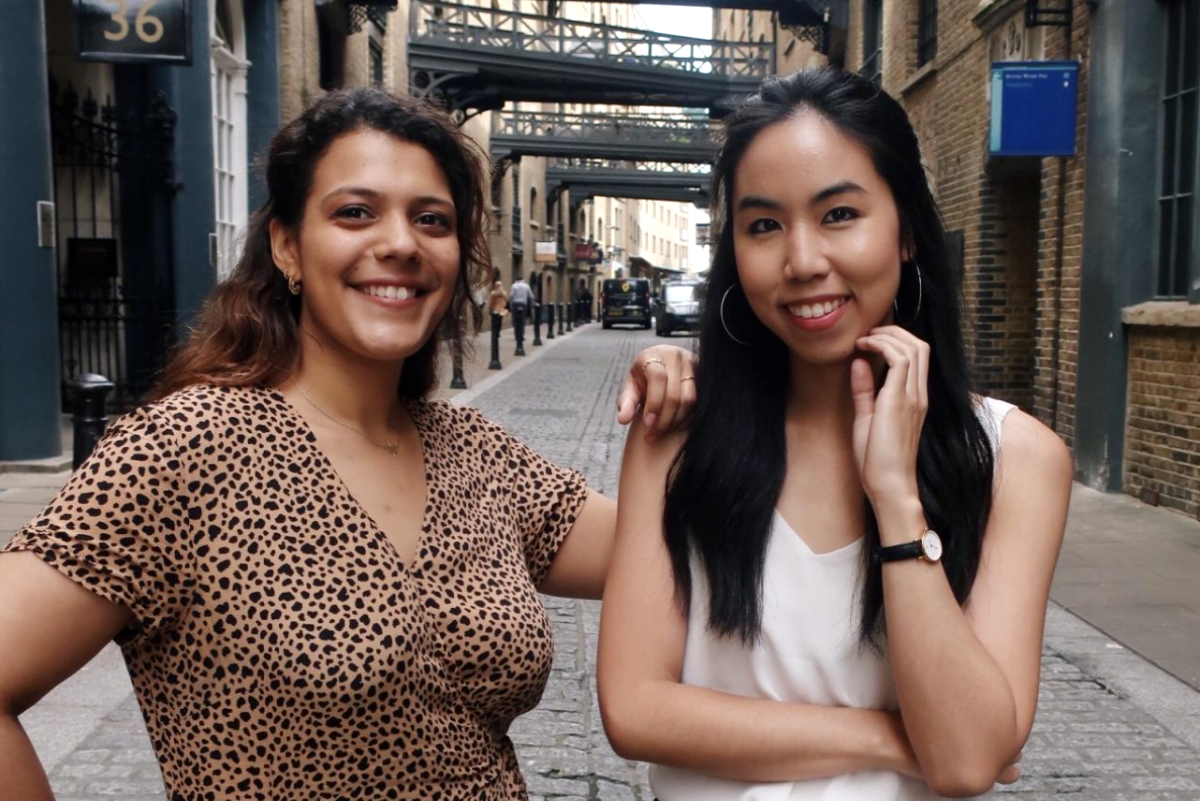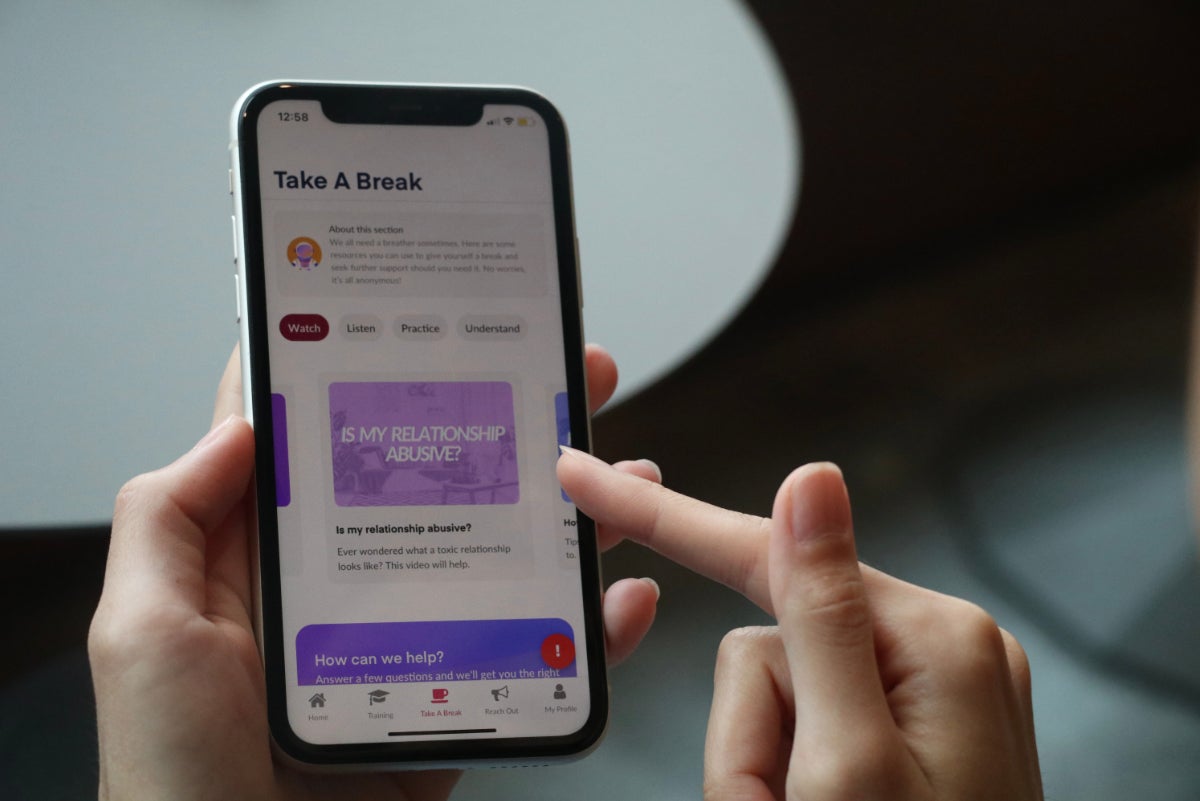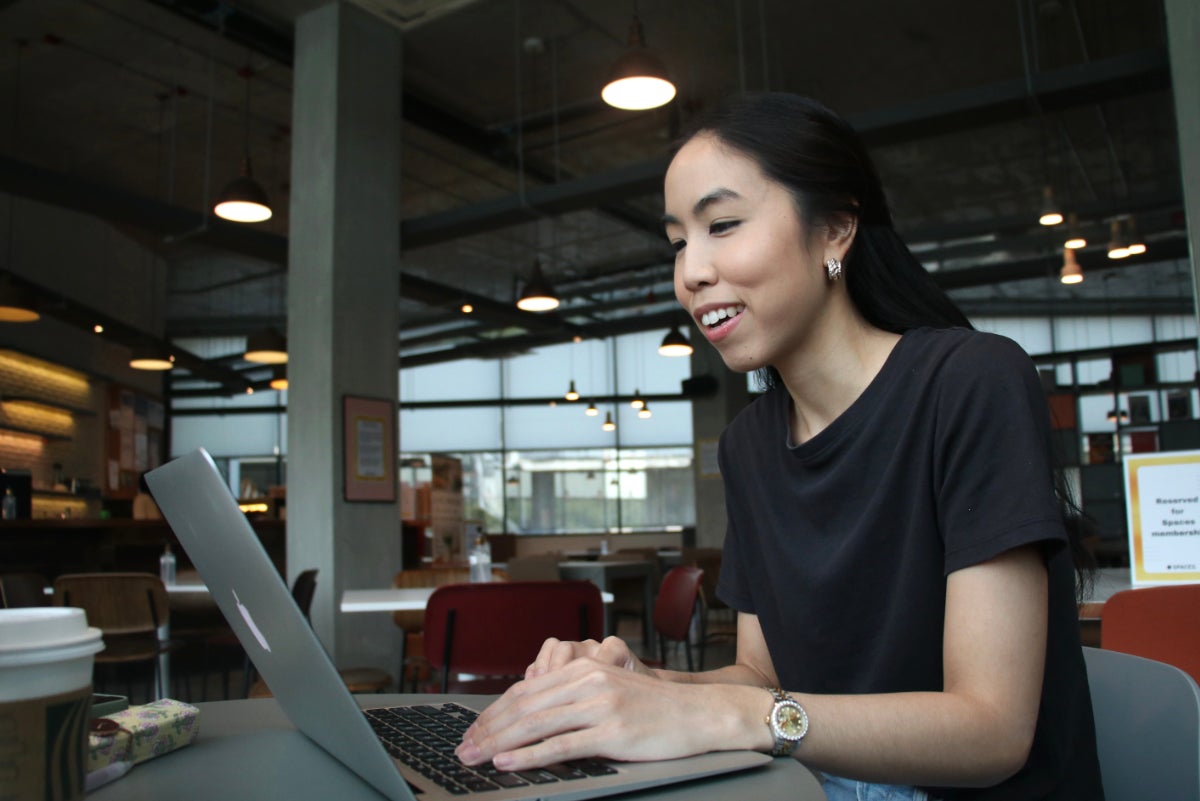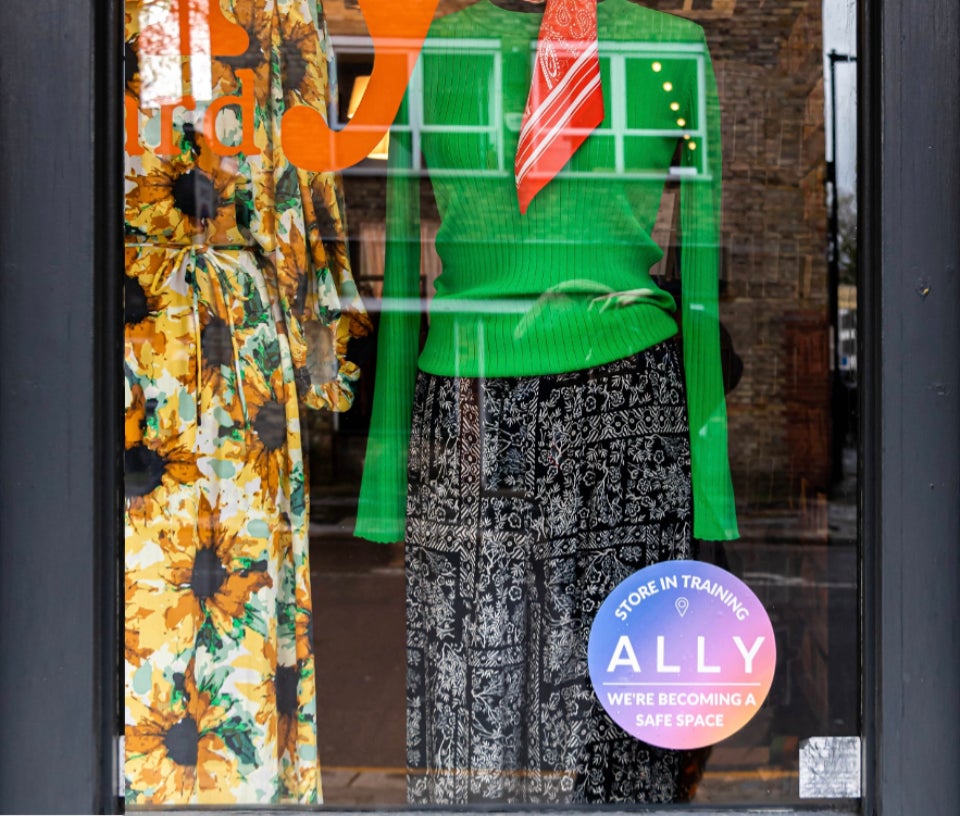Finding Strength in Allyship
How a digital solution empowers bystanders to spot and stop violence against women
Date:
Author: Zoya Khanday
“It’s hard to ignore gender-based violence after you start working on it – once you see how prevalent it is, how it affects people’s everyday lives,” says Julie Sané-Pezet, co-founder of ila Generation, a social enterprise which utilizes a human-centred approach to tackle gender-based violence.
In 2019, ila teamed up with UN Women to provide a skills training programme for women survivors of violence in Mumbai, India. This was a part of the larger vision of ila’s co-founders, Julie and Net Supatravanij to empower survivors of violence with essential soft skills that can help them obtain white-collar jobs. The kickoff of the initiative, though strong, was abruptly halted by the COVID-19 pandemic.

After months of uncertainty and disruption caused by the pandemic, the young entrepreneurs reworked their vision to be completely digital and future proof. They developed a mobile application, Ally, that delivers gamified training modules to private sector employees. The modules teach users to recognize and take action against discrimination, including gender-based violence, racism, homophobia and exclusion of people with disabilities. When employees have completed the training modules, the employer is certified and receives a sticker and media package signifying their ability to be active bystanders.

During the pandemic, digital finance and e-commerce became essential lifelines for numerous small and micro enterprises. The digital transformation was key to success for Julie and Net, as Ally uses the same technologies and platforms to equip bystanders to offer resources to women who experience violence.
With their distinct backgrounds and unique perspectives, Supatravanij and Sané-Pezet are a powerful team. Julie has a background with non-governmental organisations (NGOs) and expertise in researching the complex issues surrounding gender-based violence. Net, a former advertising professional, is committed to leveraging her marketing skills to reshape society's perception of survivors of violence.

Both women are driven by a desire to replicate the gender equality principles they were raised with. Julie and Net come from families of strong women who were empowered at home and in their careers, and both aim to extend that legacy of gender equality to the world. For both of them, gender equality is not a lofty aspiration; it is simply the foundation of a just society.
Julie's journey led her to India, where she joined a non-profit organization dedicated to combating gender-based violence. There, she conducted training programmes for women survivors of trafficking, equipping them with skills that could break the cycle of violence. She observed a stark divide between the private sector's understanding of the issue and the experiences of NGOs. This disconnect served as the catalyst for ila's mission: to bridge the gap and link those with resources to those in need.
Public spaces play a pivotal role in addressing violence, and ila focuses on the critical difference bystanders can make. By partnering with hotels, restaurants and stores, ila has transformed public spaces into safe havens without attracting unwanted attention. Ally offers a a mapping function showing safe known as "Ally zones" where survivors can seek refuge. Certified organizations or businesses are encouraged to display their sticker on their storefront, signaling their commitment to support survivors.

Today, ila operates in Berlin, Bangkok and London. In her work with survivors of gender-based violence, Julie noticed significant cross-cultural similarities. "It's not just the same feeling [among survivors]; it's the same vocabulary. The only difference you will see is the justifications used to silence people."
This groundbreaking work has not gone unnoticed. In 2021, ila was recognized as the runner-up for the WEPs (Women's Empowerment Principles) Award, the first regional awards initiative that recognizes companies who are taking action for gender equality, hosted by UN Women and the UN Global Compact.
In addition, Net's commitment to the cause earned her a place in the 30 for 2030 network, convened by UN Women Regional Office for Asia and the Pacific. This network is dedicated to placing young people at the centre of solution-building, policymaking and sustainable change.
As the Ally app continues to gain users, the next milestone will be in collecting and analysing data to reveal deeper insights into the prevalence of violence. As Julie emphasized, "It's entrepreneurship 101; you can't solve a problem you don't understand." Data from the Ally app will be key to crafting a comprehensive solution to gender-based violence.
ila embodies the unwavering commitment of Net and Julie to create a world where violence against women is eradicated. Their sustainable social business model bridges the gap between the private sector and NGOs in the fight against gender-based violence. Their vision remains clear: to ensure all women experience gender equality as a lived reality.